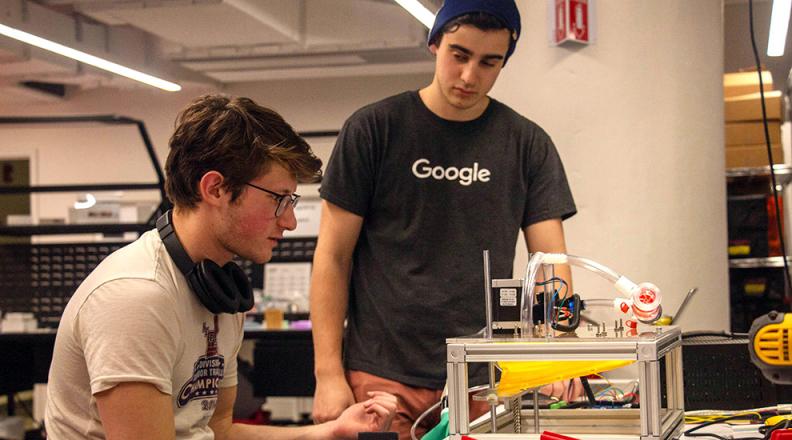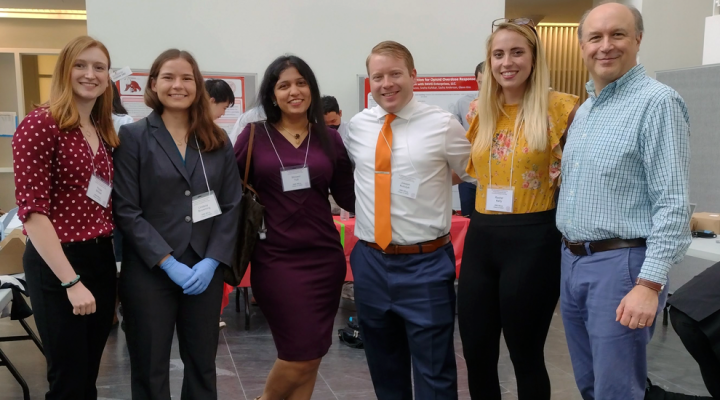Sam Feibel B.S. ’20, M.Eng. ’20 has always been interested in engineering, but only started gaining skills and experience once he got to Cornell. Feibel always intended on going into the aerospace industry after graduation but never realized his skills would allow him to directly save lives.
Feibel’s M.Eng. in Aerospace Engineering helped him transition from a physics undergrad with skills in aerospace to an aerospace engineer with a background in physics. His M.Eng. has allowed him to take specific classes that will directly pertain to the work he hopes to accomplish.
“No other area of industry has such a wide range of challenges nor such satisfying successes,” says Feibel. “Every time something new flies, the whole world advances.”
Feibel was drawn to Cornell because of the project teams in the College of Engineering, not only because Cornell has stronger and more project teams than most other Universities, but because that represented Cornell's emphasis on student-run, real-world learning.
All of Feibel’s undergraduate courses were in physics, with a handful of electrical engineering and aerospace mixed in. All of his hardware and design skills came directly from his experience with CUAir, the project team in which he was a member. “For me, this experience, and Cornell project teams as a whole has been invaluable and fulfilled everything I hoped to get out of Cornell,” says Feibel.
After students were transitioned to remote learning due to the Coronavirus pandemic in March of 2020, Feibel found himself wishing he could do more to help. He learned of the Ventilator Project, a group of engineers developing low cost and high-volume ventilators to help battle the pandemic, through a mutual friend, and immediately reached out to see if he could get involved. Within 24 hours, Feibel was on-site in Boston.
“As someone looking to go into aerospace, I didn’t see myself having the opportunity to build anything that would directly save lives in the same way as ventilators would.”
The Ventilator Project, a rapid and scalable solution to solve the global ventilator shortage, was founded by two entrepreneurs and has since grown to a group of over 200 remote volunteer engineers, medical, regulatory, and business professionals.
Most ventilators are extremely complex and capable machines that are expensive and can’t be produced at the rate needed for COVID patients – many of which would die without a ventilator. The Ventilator Project is developing machines that meet the requirements needed without interrupting the medical supply lines as to not take essential supplies away from patients.
“Our goal is mass manufacturability without using Ambu-bags or other critical medical equipment being used on the front lines right now,” says Feibel.
This type of cross-industry collaboration allows individuals to combine their skills to develop solutions to global problems caused by the Coronavirus pandemic.





